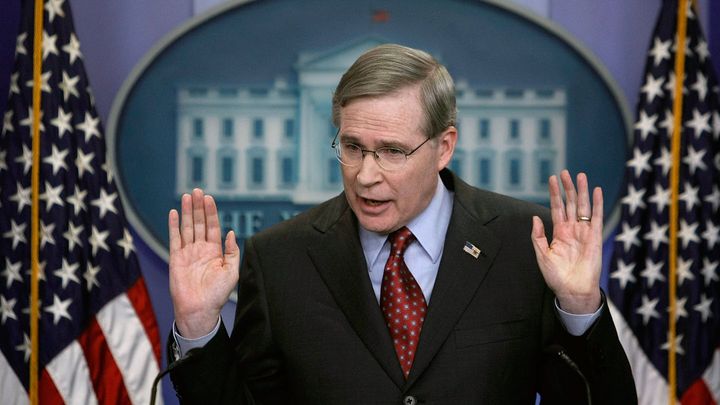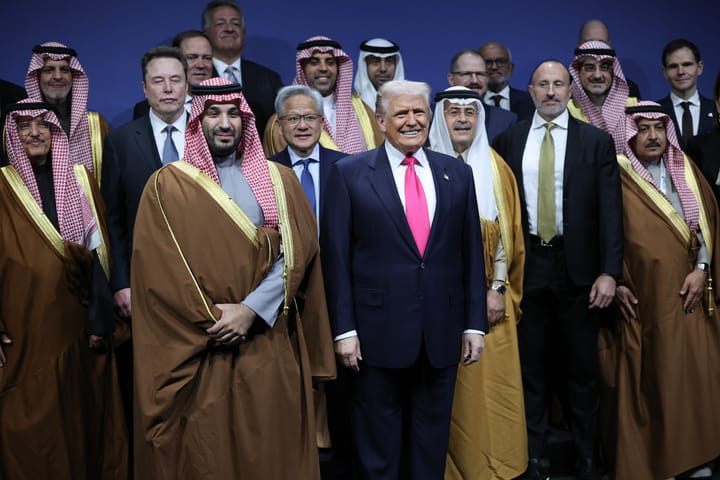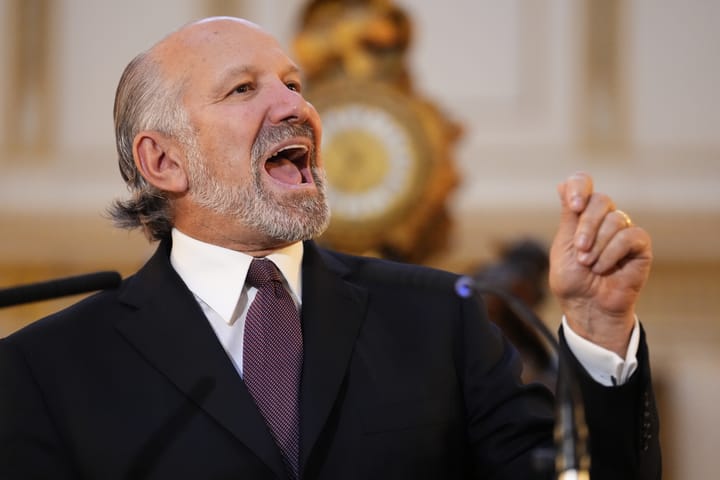This article by Rob Galbraith was first published at Eyes on the Ties, a news site by LittleSis.org
This week The Washington Post published an opinion column by Stephen Hadley, a former Bush administration official and member of the board of directors of Raytheon. In his op-ed, Hadley justified the Trump administration’s assassination of Iranian military commander Qasem Soleimani and argued that the United States should keep its military force in Iraq. Hadley wrote that killing Soleimani was “a bold move with potentially far-reaching consequences. It unquestionably heightens the risk of war; it could also open the door to diplomacy.”
For Hadley, a heightened risk of war could mean big profits, though this is not noted anywhere in his piece.
The Post, which adopted the motto “Democracy dies in darkness” after President Donald Trump’s attacks on it and other U.S. media institutions, described Hadley as national security advisor to former President George W. Bush. However, it did not disclose that Hadley sits on the board of directors of the weapons manufacturer Raytheon, as Adam Johnson noted on Twitter. Hadley earned $304,946 in cash and stock from Raytheon last year, and owns shares in the company worth more than $2.4 million.
This is not the first time that Hadley has published a pro-war column in the Washington Post without reporting his financial interest in drawing out and expanding U.S. military conflict. In 2013, the Washington Post published an op-ed from Hadley urging the Obama administration to attack Syria in order “to stop Iran.” That op-ed featured prominently in a Public Accountability Initiative report detailing pro-war pundits’ failures to disclose their defense industry ties, which the Post covered.
At the time, Post opinion page editor Fred Hiatt said:
More disclosure is generally better than less, but I’m confident that Hadley’s opinion piece, which was consistent with the worldview he has espoused for many years, was not influenced by any hypothetical, certainly marginal, impact to Raytheon’s bottom line.
On October 10, 2013, when we published our report on pundits advocating to bomb Syria, Raytheon stock was worth $76.26 per share. At the market’s close on January 6, 2020, each share was worth $227.53. Stephen Hadley’s 11,447 shares of Raytheon stock was worth $875,000 at the time of our 2013 report; today his 10,650 shares are worth more than $2.4 million. Beyond the dramatic increase in the value of his Raytheon stock as the U.S. wars in Afghanistan, Iraq, and Syria have dragged on, Hadley has also collected $1.7 million in total compensation from the company from 2014 through 2019.
Hadley is far from the only defense industry-tied pundit praising the Trump administration’s escalation of hostility with Iran without reporting their profit motive in pushing the U.S. towards war. As Lee Fang reported in the Intercept, other figures – such as David Petraeus, Jeh Johnson, Jack Keane, and John Negroponte – have also been doing a media circuit defending Soleimani’s assassination. Keane and Negroponte both figured in our earlier report on Syria as well.
Running another hawkish column by Hadley without noting his enormous financial incentive to stoke the engines of war shows that the Post in general, and Hiatt in particular, has failed to learn anything from Syria, Iraq or any of the other times that war profiteers have used their pages to clamor for missile strikes and invasions. This is made all the more egregious since, however dismissively, Hiatt acknowledged Hadley’s conflict of interest in 2013, and yet still went ahead and printed his op-ed today without disclosing this conflict – again.
We will continue to monitor the media outlets giving a platform to military industry representatives without disclosing their corporate ties throughout the coming weeks and months.
Read more Defense coverage from Sludge:
Top Democratic Recipient of Defense Industry Cash Is Silent on Iran
As Charles Koch Cultivates Anti-War Image, Koch Industries Profits from Defense Contracts
Burning Man’s ‘Radical Inclusion’ Makes Room for Weapons Lobbyists
New House Foreign Affairs Chair Receives Money from Weapons Contractors He Oversees
Is This Ex-Congressman Using His Leftover Campaign Funds To Help Lobbying Clients?



